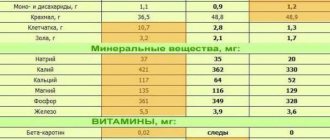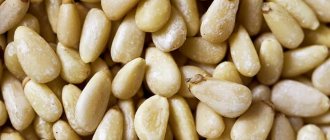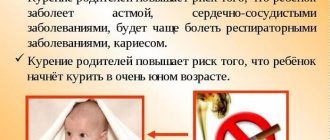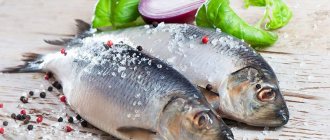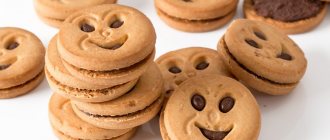What is alcohol
To understand whether alcohol can be consumed while breastfeeding, it is worth understanding what it is. Alcoholic drinks are formed as a result of organic fermentation; intoxication is achieved due to the narcotic and toxic properties of alcohol. Alcohol-containing drinks can cause not only addiction, but also poisoning. After consumption, ethanol is quickly absorbed into the blood and distributed throughout the body.
Drinking a small amount of alcohol leads to a violation:
- metabolism, which negatively affects lactation
- work of internal organs
Thus, the conclusion is that the toxins contained in alcohol pass into breast milk.
Do I need to express milk?
Alcohol, once in the stomach, penetrates everywhere. The main difference is the concentration of the substance. Only 10% of the ethanol molecules contained in the blood penetrate into milk. The substance is removed simultaneously from all organic systems. Therefore, when asked whether it is necessary to express milk after drinking alcohol, doctors answer that this is not necessary. But if you have a child under 3 years of age at home who needs feeding every 120-150 minutes, then you should leave a bottle with nutritional liquid.
Expressing to minimize the concentration of alcohol in the blood is useless, since all organs are renewed in a certain mode. It will not be possible to influence him from the outside. After the time indicated in the table has passed, you can continue feeding without fear that the baby will be poisoned by ethanol molecules. To be safe, you can add 1-2 hours to the alcohol withdrawal time, and then feed the baby.
Alcohol while breastfeeding
Doctors strongly recommend that you stop drinking alcohol during lactation. Mothers who ignore this advice risk their baby’s health. Breastfeeding and alcohol are completely incompatible concepts. Breastfeeding women should postpone drinking alcohol until the end of the lactation period, this will help protect the baby from various pathologies.
How long does it take for alcohol to pass into breast milk?
Alcoholic drinks quickly pass through the blood into breast milk, reaching a high concentration about half an hour after consumption. If a nursing mother drinks alcohol at lunch (a heavy meal), then it enters the milk after 1-2 hours, and the ethanol concentration will be about a third less than when consumed on an empty stomach. Sparkling wines enter the bloodstream and milk faster.
It is important to know that pumping is not advisable as a cleansing, because alcohol enters breast milk through the bloodstream. Consequently, it will remain there until the body is completely cleansed.
During lactation, ethanol remains in the body for a long time, which causes more harm to the baby.
How much alcohol passes into breast milk?
The characteristics of the female body mean that alcohol is absorbed quickly, but excreted extremely slowly. 10% ethanol is found in breast milk, the amount that enters the gastrointestinal tract and bloodstream.
The effect of alcohol on lactation
Alcoholic drinks have a negative effect on the lactation process, as they depress the central nervous system, whose task is to control all processes. In women who abuse alcohol during lactation, the amount of milk produced decreases. All this is due to the fact that ethanol interferes with the release of prolactin, the hormone responsible for milk production.
Impact on a nursing mother
Drinking alcohol during breastfeeding causes pain in a woman, since ethanol leads to a narrowing of the mammary gland ducts. A newborn has to make every effort to get food. Strong sucking leads to increased pain for the mother. Severe narrowing of the ducts of the mammary gland leads to stagnation and the formation of plugs from clots. If the patency of the duct is not restored in a timely manner, lactostasis may form, which, if left untreated, turns into mastitis. The above diseases are extremely dangerous for women; they require immediate treatment under the supervision of highly qualified doctors.
Precautionary measures
The question “can I afford alcohol while breastfeeding?” becomes especially relevant on the eve of the New Year holidays.
Especially in order to answer all questions related to the compatibility of alcoholic beverages and breastfeeding, we have prepared this material for you.
To drink or not to drink?
First of all, it is worth noting the fact that frequent drinking of alcohol is definitely not recommended for breastfeeding women. Regular consumption of alcoholic beverages, even in small doses, has a sedative effect, provokes irritability, and increases family expenses.
Alcohol consumption by a nursing mother can cause delayed psychomotor development in the child. Excessive alcohol intake by the mother can cause seizures and coma in a young child.
Contrary to popular belief, drinking alcohol (particularly beer) in small doses does not increase milk supply. Despite the slight increase in prolactin levels, alcohol suppresses the production of oxytocin, which makes it difficult for the breasts to release milk.
For this reason, the baby may suckle at the breast longer than usual, become tired from prolonged sucking, and not receive the required amount of milk. Also, drinking alcohol can provoke lactostasis.
Regular consumption of alcohol leads to decreased milk production.
But what if you want to allow yourself a glass of wine, for example, at the holiday table? Lactation consultants suggest that there is no need to completely eliminate alcohol consumption in breastfeeding women.
By taking certain precautions, a nursing mother can easily afford to drink alcohol in reasonable quantities.
What and how much can you drink?
As with any other product, you should pay attention to the quality of the alcoholic product. Poisoning with low-quality alcohol is possible even when consuming small doses and will not bring any joy to you or your loved ones.
The concentration of alcohol in blood and breast milk is approximately the same.
Breastfeeding after drinking any alcoholic drink will be completely safe once the alcohol is completely eliminated from your body. The amount of permissible safe dose of alcohol depends on the type of drink, therefore, for convenience, the concept of a “standard dose of alcohol” has been introduced:
1 standard dose corresponds to 15 ml of pure alcohol, 30-40 ml of strong drinks (such as vodka, cognac, whiskey, etc.), 120-150 ml of wine, champagne or 350 ml of beer.
Also, the rate at which alcohol is eliminated from the body depends on your individual characteristics, such as weight, age, general health, and also on whether you consumed any food or other drink with alcohol. The more you weigh, the faster alcohol is eliminated from the body.
Various diseases (especially diseases of the gastrointestinal tract, liver and kidneys) increase the time of alcohol elimination and its concentration in the blood, as does drinking alcohol on an empty stomach.
On average, 1 standard dose of alcohol is eliminated from the body in 2-3 hours*
Thus, after drinking one glass of wine, a glass of vodka or a glass of beer, you can breastfeed your baby after 3 hours. However, there is no need to express breast milk after you have allowed yourself to drink.
The alcohol content in breast milk corresponds to the alcohol concentration in the blood. As alcohol is eliminated from the body, its concentration in the blood drops and breast milk is “cleansed” along with the blood.
Whether you are breastfeeding or not, any parent who drinks alcohol should be extremely careful when around a young child. Control your level of intoxication.
Under the influence of alcohol, people's reaction speed decreases, attention becomes dull, and irritability and drowsiness appear.
All this can be extremely dangerous for a small child. In situations where one of the parents is even slightly intoxicated, it is better to ensure that someone sober is looking after the child.
The younger the infant, the more harm alcohol can cause him. It is worth completely avoiding the use of any doses of alcohol if your baby is less than a month old, is low birth weight, premature, sick, or has developmental disabilities.
Avoid situations in which a drunk person can fall asleep with the child. Avoid co-sleeping if you have been drinking alcohol.
When deciding whether to drink an alcoholic drink or not, keep in mind all the above precautions. If you are sick, overworked, or taking medication, the effects of alcohol on your body can be unpredictable. https://www.mamascom.ru/
Alcohol during breastfeeding - consequences for the child

A single intake of alcohol by a nursing mother leads to the following negative consequences for the baby:
- fatigue quickly
- severe drowsiness
- anxiety
- tearfulness
- respiratory depression (if taken in large doses)
A woman’s abuse of alcoholic beverages leads to serious consequences for the baby:
- liver damage
- increased nervousness
- increased excitability
- blood pressure drop after feeding
- impairment of physical and mental development
- alcohol intoxication is formed due to the fact that ethanol is processed more slowly in children than in adults. Consequently, toxins accumulate in the body after just a few feedings.
- alcohol addiction, the body of a child whose mother abuses strong drinks gets used to the regular supply of ethanol. When the alcohol stops flowing, the baby feels a deterioration in health, just like alcohol dependent people.
Drinking strong drinks during breastfeeding causes severe harm to the child, and there is no benefit from alcohol. It is important for a woman to refrain from drinking alcohol during lactation. Mom must understand that the younger the child, the harder he tolerates the influence of alcohol. Alcohol is especially dangerous when a child is under 3 months old, at which time the body is not yet able to digest ethanol on its own. If the liver receives such blows from the first days of life, then there will be serious health problems in the future.
From birth to one year, the newborn’s brain is formed. It is advisable not to drink alcohol at all until the baby is 12 months old.
Myths and reality
According to statistics, every seventh mother who gives her child milk drinks alcohol. A woman who allows herself a glass of beer or a glass of cognac in the company of friends believes that she is not harming her baby.
We are not discussing cases of developed dependence on alcohol and what the consequences are for the child’s body from maternal alcoholism. Everything is already very clear.
In general, there are several different views of healthy mothers on the question that worries many - can breastfeeding women drink:
- Alcohol is a taboo during planning, the period of gestation, after childbirth and the entire period of natural breastfeeding.
- Drinking alcohol (beer, cocktails, low-alcohol drinks) during breastfeeding is acceptable if you drink occasionally and in minimal dosages.
- A nursing mother can “enjoy” alcohol if she follows safe drinking techniques.
Which opinion is more reasoned, only you can decide after reading the article, but for now you should consider the numerous myths and speculations surrounding nursing mothers and alcoholic beverages.
- Myth No. 1. Beer improves lactation. Some “well-wishers”, having offered a nursing mother a glass of beer, convince that it affects the volume of milk. Probably, this opinion was formed due to the fact that after consuming this foamy drink, the child more often asks for the breast, that is, the number of meals increases. Scientists have proven that, despite the increase in the frequency of feedings after beer, the total volume of milk is reduced by 25%. This means you can’t drink beer to improve lactation.
- Myth No. 2. Alcohol helps a child fall asleep. Often, nursing mothers are advised to drink a glass of beer or a glass of weak wine before evening feeding so that the baby can sleep well all night. However, American scientists have refuted this misconception, finding that maternal consumption of alcoholic beverages leads to the opposite effect. At first, the child, having eaten the “drunk” milk, feels light, then little by little he begins to fall asleep. But these dreams are short, shallow, and there are no resting phases during which the baby could regain strength. And the duration of sleep in a child who has drunk “drunk” milk is significantly shorter than in a child who has consumed a healthy product without additives.
- Myth No. 3. Alcohol does not change the taste of milk. A nursing mother who takes this opinion for granted is certainly mistaken. Many foods and drinks, including those containing alcohol, change the taste and composition of breast milk. If a nursing mother enjoys a glass of beer or drinks 100 grams of strong drink before breastfeeding, the baby often refuses milk that has become unusual.
- Myth #4: Expressing reduces the alcohol content of your milk. There is little logic in such actions, since alcohol is not able to accumulate in mother’s milk. This substance, penetrating into the bloodstream, with its help enters the mammary glands, and then, having completed a “circle,” returns to the blood again. That is, it is useless to express the “intoxicating” product, since this will not reduce the alcohol in the milk. In this regard, it is useless to drink large amounts of liquids - tea or water.
- Myth No. 5. Severe intoxication of the mother does not pose a danger to the child. Naturally, with excessive libations, the alcohol in milk exceeds all reasonable limits, which is fraught with big problems for the baby. In addition, “several times a hundred” significantly slows down the reaction time of a nursing mother to various stimuli. The baby turns around, tries to get up in a crib or stroller, grabs onto potentially dangerous objects - all this requires speed and attention from the mother. The consequences of a mother’s insufficiently quick reaction can be disastrous.
- Myth No. 6. Alcohol in minimal doses can relieve stress in nursing mothers after childbirth. An absolutely unfounded statement, since ethyl alcohol can only increase depression, including that occurring after childbirth. In addition, the body of a newborn baby is not able to cope with the toxic effects of alcohol that reaches it through milk. The damage will be caused, first of all, to the immature children's liver.
How to feed your baby if you've been drinking
Under no circumstances should you feed your child “drunk” milk. Even a single dose of ethanol is dangerous for a baby. It is worth considering that if there is intolerance, a severe allergy may occur, which can harm the child’s health.
Women often wonder: how long can a newborn be fed after drinking alcohol? Accordingly, they are also interested in the question: how long does it take for ethanol to disappear from breast milk? If a nursing mother drank small amounts of weak alcohol, then feeding is possible after 1-1.5 hours. During this period, alcohol will disappear from the body and will not harm the baby. After taking a strong drink in a small dosage, feeding can be done after 2-3 hours. The time it takes to withdraw alcohol is affected by a woman’s weight; the larger it is, the faster the alcohol is processed.
If the mother decides to drink a strong drink, she needs to express milk in advance. It can be stored in the freezer for a certain period of time. Such a reserve can be very useful, because situations in life are different.
If you can't, but really want to
Unfortunately, it is not so easy for people to abstain from drinking alcohol-containing products for a long time. Often ladies want to drink a little at the festive table when there are a large number of drinks in sight. In such a situation, you should correctly assess the situation and properly prepare for the feast.
Rules for safe dining
If a decision has been made to break the alcohol-free regime, it is important for the nursing mother to remember the rules that will help protect the baby from the harmful effects of ethanol.
The main safety measures that should be followed when drinking alcohol during breastfeeding:
- Avoid any alcohol until the baby is 3 months old
- do not drink drinks whose strength exceeds 15%
- avoid intoxication
- have a good snack
It is important to know that it will not be possible to remove alcohol from breast milk using large amounts of water and sorbents. The alcohol will remain there until the ethanol is processed and completely eliminated from the body.
Anti-intoxication medications negatively affect the quality of breast milk. Therefore, it is important to consider that a nursing mother can drink alcohol only in small quantities.
What and how much you can drink
During breastfeeding, it is better to completely abandon:
- vodka
- cognac
- whiskey
- champagne
- sparkling wines
The dosage should be calculated based on the woman’s weight and the period between feedings. Typically, a portion of a light drink should not be higher than 100 g; vodka or wine is sometimes allowed to drink 20 g.
Nonalcoholic beer
It is important for women to know that not every non-alcoholic beer can be consumed. After all, so-called drinks contain a small percentage of ethanol, usually about 5 to 1. In addition, beer may contain flavor enhancers, preservatives and dyes, which are very dangerous for a child. When choosing non-alcoholic beer, you should be extremely careful. If alcohol and artificial ingredients are not indicated on the label, you can safely drink such a drink.
How long does it take for beer to leave breast milk?
It will take about 1 hour for slender women to remove half a glass of beer, but if you drank a bottle before feeding, you should wait 4.5 hours. When the mother’s weight is about 100 kg, the body will cleanse itself in 2.5 hours. For plump women, 300 of the intoxicating drink is eliminated in about 90 minutes, for thin women in 150 minutes.
The opinion of pediatrician Komarovsky
Drinking strong alcoholic drinks during breastfeeding is taboo. But Dr. Komarovsky does not prohibit beer, because when consuming a high-quality drink, you can even get benefits for the body of the mother and child.
You can’t get carried away with a foamy drink. It is best to choose a non-alcoholic product. When purchasing a store-bought product, the risk of beer containing various preservatives, additives, and flavor enhancers increases.
According to E. Komarovsky, low-alcohol drinks, for example, beer, can be consumed during hepatitis B, but not often and in small quantities.
At home, you can make beer based on barley malt with the addition of brewer's yeast or fruit liqueur, reducing the degrees to a minimum. This will give you the opportunity to treat yourself to a festive cocktail without harming your baby’s health.
Myths about alcohol during breastfeeding
There are many myths about the effect of alcohol on breastfeeding. So women, hiding behind them, allow themselves to drink periodically.
More common misstatements:
- When drinking alcohol, milk increases. intended for feeding a baby. However, in reality it's the other way around
- Alcohol improves the baby's sleep quality. Alcohol causes drowsiness, but in mothers who drink, children often wake up at night and have short sleep phases
- Expressing will help remove alcohol from milk, of course not. While the breakdown products of ethanol are in the body, they are also in the “food” for the child
- Alcohol does not change the taste of breast milk. But in truth, regular drinking leads to a deterioration in the taste of the baby’s “delicacy.”
Alcohol is not allowed during breastfeeding, as it negatively affects the child’s health. In addition, under the influence of ethanol, a woman cannot fully monitor her child.

